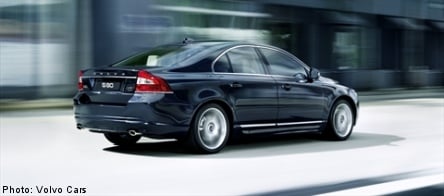The decline in Volvo Cars results is due primarily to lower volumes and a disadvantageous product mix, net price levels and currency effects, according to Ford. The decline has been partially offset by cost cutting.
Turnover declined from $4.4 billion to $4.3 billion.
Volvo Cars plans to manufacture 80,000 cars in the third quarter and 110,000 in the fourth quarter. This can be compared with 112,000 in the second quarter.
The whole Ford concern posted a net loss of $8.7 billion for the period. Profits in the corresponding period of 2007 amounted to $750 million. Ford’s figures were weighed down by exceptional items totalling $8 billion, including the substantial depreciation of various assets.
Ford’s results were below analyst expectations. Excluding exceptional items losses amounted to $0.62 per share in comparison with a table of analyst forecasts compiled by news agency Reuters, of $0.25 per share.
Revenues however held up better than expected and came in at $38.6 billion, in comparison with $44.2 billion in the corresponding period of 2007.
Ford CEO, Alan Mulally, said in a press conference on Thursday that the company would meet the challenges of the future by shifting focus from pick-ups and SUVs to smaller vehicles.



 Please whitelist us to continue reading.
Please whitelist us to continue reading.